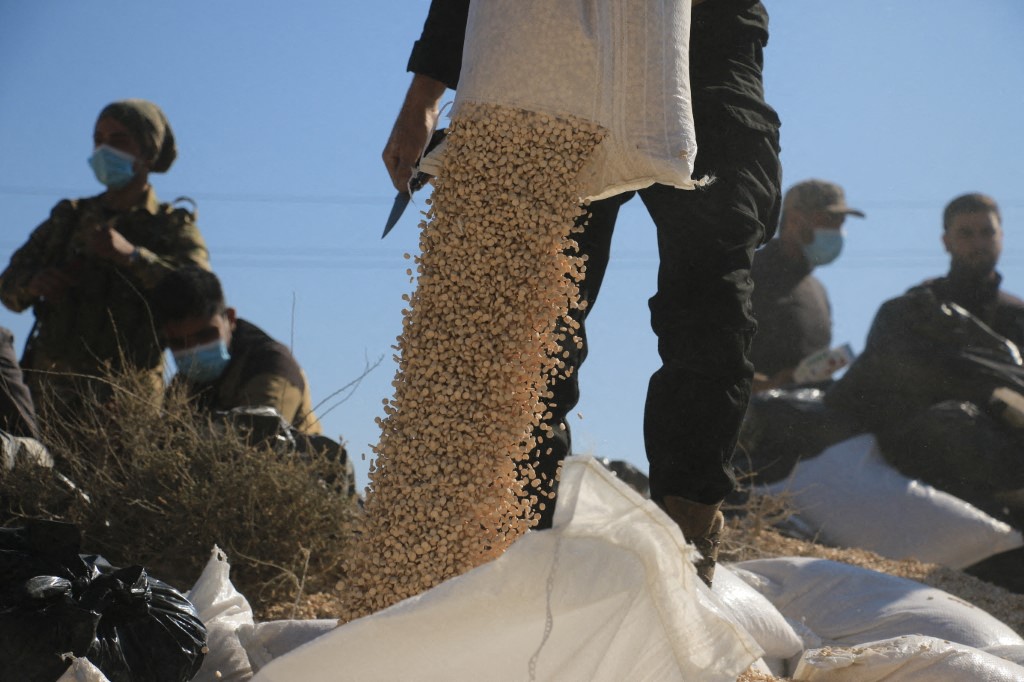June 26 marked, as every year, the “International Day Against Drug Abuse and Illicit Trafficking.” But in Lebanon, this occasion carries far more than symbolic global slogans or awareness campaigns. It sounds an alarm in a country grappling with economic collapse, a weakened state, and a shadow system thriving on chaos and security vacuums.
Drug Trade: A State Within the State
In Lebanon’s eastern mountain ranges and border areas, secret laboratories and factories operate to produce various narcotics, chief among them Captagon, in a production cycle so extensive the state cannot count—let alone dismantle or prosecute—it. This is not a matter of isolated criminal acts; it is an almost fully integrated system with funding networks, weaponry, and political and economic ties, competing with the state in its areas of influence—and even in some of its roles.
In this context, showcasing quantities of seized drugs or holding awareness events is no longer enough. Lebanon now faces the real threat of becoming a “regional drug hub,” with annual revenues from cannabis, heroin, and Captagon exceeding $4 billion. Over 75% of these drugs are smuggled to Europe and North America, while the rest is consumed domestically or stockpiled for later export.
2025: Year of Major Raids and Shocking Revelations
Since the start of this year, security raids have intensified, especially in the Bekaa region. The most striking event took place on January 8, when authorities seized 50 million Captagon pills in a single compound in the town of Yammouneh. Subsequent joint operations with Syrian authorities led to the closure of several factories and the dismantling of smuggling networks. Yet these blows have not changed the stark reality: Lebanon remains one of the region’s main cannabis producers, with cultivation areas yielding millions of pounds annually.
Following the collapse of the Syrian regime in late 2024, investments in Captagon and drug factories shifted into Lebanon, where “new drug lords” began building parallel power structures intertwined with politics and the economy, penetrating key decision-making circles.
Drug Use Among Youth: A Societal Crisis
Beyond the security and economic disasters, troubling indicators are emerging regarding drug use, particularly among youth and teenagers. A 2017 study by the Ministry of Health, in cooperation with international organizations, revealed that 4.7% of students aged 13 to 15 had tried drugs at least once—a relatively high rate by local standards. Recent years have also seen a rise in drug-related arrests, reflecting wider consumption and involvement, especially given the economic crisis pushing young people toward desperate choices.
Amid financial collapse, unemployment, and collective depression, the drug market is increasingly seen as the only escape for youth offered a cheap, dangerous path to flee reality.
A Structural Crisis Threatening Lebanon’s Future
Despite security efforts and regional cooperation, Lebanon still lacks a comprehensive drug policy that addresses economic, social, and psychological challenges. The problem is not merely a security issue; it is a structural one rooted in state absence and institutional decline—factors that risk cementing Lebanon’s role as a central node in international trafficking networks and deepening its regional and international isolation.
This crisis has already strained Lebanon’s relations with several Arab states, some of which have severed or suspended ties over Lebanon’s involvement in drug smuggling through its territory or ports, exacerbating political and economic isolation.
From Slogans to Action
As the International Day Against Drugs passes, awareness and slogans alone are no longer sufficient. What is needed now is a comprehensive strategy—starting with restoring state control over lawless areas, implementing psychological and social support programs for youth, and reintegrating Lebanon into its Arab and international environment as a state capable of securing its borders and combating organized crime.
June 26 should not remain a mere media event, but become a turning point to halt the collapse of a society on the brink of being entirely captured by death-dealing mafias.
Please post your comments on:
comment@alsafanews.com
 Politics
Politics













